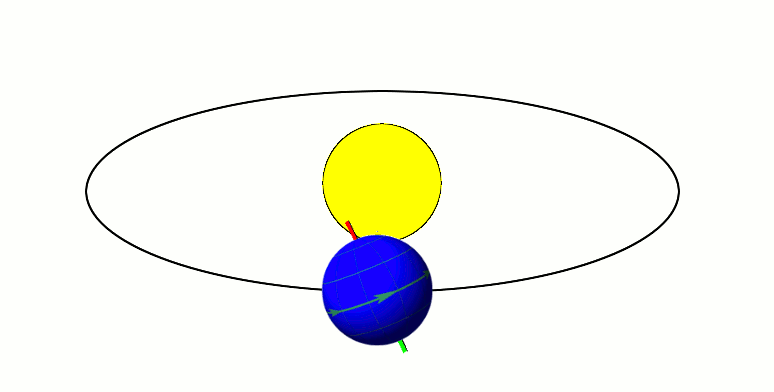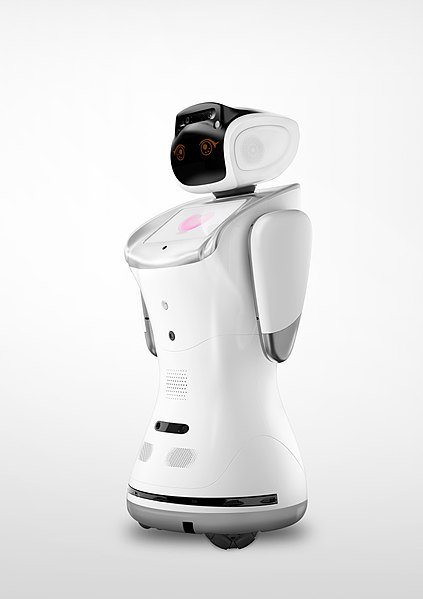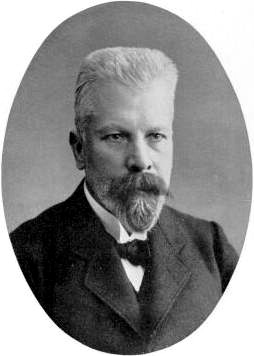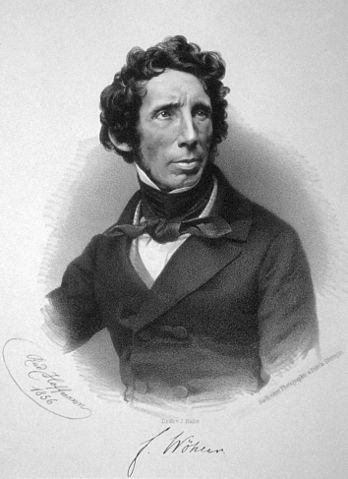Eduard Buchner: The Man Who Killed Vitalism
A New Series
This is my first science post. I intend this to be the first episode in an "introduction to biology" series, a sort of Biology 101. I chose biology because it's my favorite hard science, the reason being that it's more anthropocentric than the other hard sciences. And I, being a selfish anthropos, like whatever revolves around me. If the sun won't do it, a science might!

Source
Yellow ball = me. Blue ball = biology.
What is life?
If, as almost all textbooks (and its etymology) tell us, biology is the study of life, then what is life?
Biologists often attempt to define life by its properties: living organisms reproduce, they evolve, they consume energy, they respond to stimuli, they grow, and so on (see, for instance, Concepts of Biology, pp: 6-9.)
Are the conditions sufficient?
A fire reproduces, consumes matter to feed itself. A snowball rolling down a slope can grow. A universe might evolve. A black hole consumes energy. So does my smartphone, faster than I'd like. I respond to flame by retracting my hand, but so does the flame when I pour water at it. Yet fires, universes, black holes, and smartphones are not alive.
Are the conditions necessary?
A woman after menopause can't (normally) reproduce, but that doesn't make her dead. Nor can variocele surgery bring men back to life. The last living dinosaur was unable to breed, but it wasn't exactly dead (though it would soon be).
Beyond the actual
And all the examples I gave are real. I didn't even go into "what if" scenarios. A scientist could certainly make up his mind to create a robot that would satisfy all conditions for life.

Source
"Of course I'm alive. Here's my ID. I'm Turing-certified and everything," the robot stated in an interview.
Plus, we don't even know whether viruses are alive. And NASA had to widen its net (its definition of life) in order to increase its chances of catching some aliens.
The Plan
So where does this leave us? (As far as I'm concerned, something is alive if it possesses consciousness. But that's a different – and more complicated – story.) Myself, I'm a fan of dialectics: I believe debate and juxtaposition lead to higher retention rates, and make learning easier, funner, and deeper. For instance, juxtaposing Lamarckism (the theory that acquired characteristics, like scars, can be passed on to offspring) to Mendelian inheritance (the theory that "you're wrong, Lamarck!"), can help us grasp these concepts better than if they were presented to us alone, like a single fighter in a boxing ring. That would be boring. That would be rote memorization. We might imagine a student crying: "I want a fight, damn it!"
So what I propose we do here, is answer the question "What is Life?" through revisiting the old biological rivalry between mechanism and vitalism: the theory that life is something over and above simple chemical and physical processes, something completely distinct from inanimate matter. And we will do this, via a case study of the research that landed Eduard Buchner the 7th Nobel Prize in Chemistry. So, without further ado, I give you the man who killed vitalism!

Source
"The work on which I have to report lies on the boundary between animate and inanimate nature." - Eduard Buchner
Vitalism VS Mechanism
Is there a "living principle" in addition to mechanics? Is it life qua life that makes certain things happen, or can everything be reduced down to chemistry? Vitalism is the idea that certain processes can never be carried out by inanimate nature. Fortunately, unlike many other theories of its ilk, vitalism was falsifiable! This made it scientific: it was possible to conduct experiments that would disprove vitalism, since vitalist scientists of the 19th century "predicted that organic materials could not be synthesized from inorganic components".
The unsung hero
Friedrich Wöhler, in 1828, succeeded in artificially producing urea, thus smashing the formerly held idea that urea could only be produced in animal bodies, under the influence of "the life force" (Cell-free fermentation, p. 105). However, no one seemed to pay any attention, since vitalism, true to its name, remained alive despite this achievement. Vitalism therefore remained the prevailing dogma.

Source
"I'm still mad at you," Wöhler stated in an interview with the author conducted via a medium.
Enter fermentation
Fermentation - that beautiful process that gives us beer and wine among other things - was destined to become the battlefield on which the fates of vitalism and mechanism would be decided. "Fermentation was seen to be a physiological act inseparably linked with the life processes of yeast," Buchner stated in his Nobel Lecture. The mechanistic theory - in this case the enzyme theory - enjoyed great favor, but zero successes. "[E]very attempt made to separate such an enzyme from the yeast cells had failed." "[E]ven [Louis] Pasteur himself, the great experimenter had no success." (Cell-free fermentation, p. 107.)
Trying to get at the machinery inside the yeast, scientists threw everything they had at it. They boiled it, crushed it, doused it with various chemicals (ibid. pp. 108-9). But to no avail. As Buchner says in his Nobel lecture: "Lüdersdorff in Berlin had, as far back as 1846, crushed yeast cells on a sheet of ground glass with the aid of a glass roller, a task which, however, took an hour for 1 g of yeast. When dextrose was added to the pulp thus obtained, 'not one single bubble of gas' was given off, and the vitalistic theory thus seemed confirmed."
Rats! What can be done! I guess it's off to ebay to buy us some good yeast-crashing equipment.
Age of the machines
Source
Aptly named.
What you're seeing above is basically a mechanized pestle that, with the help of sand, can pulverize yeast to get at the magical "vitalistic" stuff inside. With the device pictured above, this can be done within a few minutes. The result is then added to a hydraulic press, where 500 cc of liquid can be obtained from 1000 g of yeast, to create "pressed yeast juice", which Buchner merrily handed around to the audience of his Nobel lecture. Lastly, "[i]f sugar solution is added to freshly expressed yeast juice, a strong formation of gas sets in after a little while." Thus, Buchner had succeeded in showing that fermentation can occur without living organisms, just enzymes.
Source
What is it with the early 20th century and self-explanatory machine names?
Piece of pie?
I made it sound easy. Science rarely is. It took Buchner alone decades and dozens of distinct experiments to get these results. But his work paid off. "If we now summarize the results of all these experiments, we establish that a separation of the fermentation effect from the live yeast cells can be carried out. [...] The active agent in the expressed yeast juice appears [...] to be a chemical substance, an enzyme, which I have called 'zymase'. From now on one can experiment with this just as with other chemicals." (Cell-free fermentation, p. 113)
And thus vitalism was pronounced dead: "Just as it was earlier learnt how to produce urea without a living animal, in the test tube, without any life force, so it is seen here that an apparent action of live cells can take place without cells." (Cell-free fermentation, p. 119) And, conversely, mechanism was crowned victorious: "We are seeing the cells of plants and animals more and more clearly as chemical factories." (ibid.)
Conclusion
Hopefully my approach will have given you an idea of what life might be, by stating what it definitely is not: it's not something that can do things inorganic matter can't. Life is purely material and mechanical. Any attempt to say that life is something over and above, will - if history is to be trusted - lead to the dreaded "ne plus ultra", a "go no further", a "science stops here". In Buchner's words:
Even though we may still be a long way from our goal, we are approaching it step by step. Everything is justifying our hopes. We must never, therefore, let ourselves fall into the way of thinking "ignorabimus" ("We shall never know"), but must have every confidence that the day will dawn when even those processes of life which are still a puzzle today will cease to be inaccessible to us natural scientists. (Cell-free fermentation, p. 105)
Study questions
- Do you think life is better defined positively or negatively? By stating what is is, or what it is not?
- Can we ever define life in such a way as to exclude all non-life, and to include all life? For instance, if we define life as DNA-based, do you think non DNA-based life is impossible?
- Do you think life is mechanical? If yes, how mechanical are we? In his title song of his album Mechanical Animals, Marilyn Manson says, "If we cry we will rust". I’m pretty sure that is completely unrelated to what we've discussed here, but feel free to comment.
Sources Cited:
Are Viruses Alive?
Boundless Biology
Cell-free fermentation
Concepts of Biology
Defining Life: Q&A with Scientist Gerald Joyce
Dialectic
Lamarckism
Mendelian inheritance
Necessity and sufficiency
Penn State physicist poses theory of evolving universe
Varicocele
Vitalism
Notes:
Dinosaurs didn't actually die off. They evolved into love birds.
steemSTEM is the go-to place for science on Steemit. Check it out @steemstem or visit on #steemSTEM in steemit.chat ( https://steemit.chat/channel/steemSTEM )
DeepThink is the go-to place for the humanities on Steemit. Check it out @SteemDeepThink or visit on discord ( https://discord.gg/7qyarFD )
So bacteria are not alive? What about a plant? No evidence of consciousness there.
Sure, why not? It would have to be very simple, but RNA could potentially support life.
No, we are too adaptable. Machines by and large are not.
Well that's the problem, but I'll bite the bullet and say that, as far as I'm concerned, they're not alive! I can certainly see a (close) future in which scientists create nano-"bacteria" that possess all the qualities that are usually assigned to life. They can already do that with software, but since they don't exist in the outside world, we don't call them life. But how difficult would it be to give that software a 3D material metallic body? And if we do that, I'll call it a robot. A dead robot. Not life. So no, I don't consider them life, though I know my definition is highly idiosyncratic!
I guess this might relate to the Sorites paradox: at which point does a wound up toy soldier become so complicated that we're willing to call it life?
Also, about plants, there's some wacky scientists now saying they possess consciousness! Using their own idiosyncratic definitions!
Thank you for your comments!
I have never disagreed with anyone on anything so much. :D
Why should the human designation of consciousness have any bearing on what life is? IMO a very narcissistic stance ;)
If the thing is metabolically active and exists to reproduce (at minimum), then its alive IMO. IE has enzymes for the purpose of performing chemical reactions to generate energy. (for this reason viruses are not alive, they lack their own metabolic capabilities, though I would argue that perhaps they have enough and are life)
If the robots don't have metabolism they aren't alive. If they do, I don't think it matters that their outside is made of metal.
When it has its own metabolic capabilities and can reproduce.
It's a different question to ask, at what point would we consider a toy soldier a human?
Thanks for the upvote in my post
You don't need to thank me for upvotes. I upvote because I want to :)
Like here, you get $2 because I want you to have it.
Actually i trying new approach to improve here in steemit, i feel like im playing a computer game hahahaha
awesome, i do this because its a personal approach to another steemers and i noticed is not common people do this.
Just remembered that Frankenstein (the doctor) says "it is alive" (of the monster), so...he could've meant "it's moving", so...fail!
How do we know frankenstein lacked metabolic processes? ;)
We only know he was reanimated by lightning.
Well we can't really define consciousness yet (or at least we can't detect it), so I don't know if it matters much whether we call something alive only if it's conscious. My favorite "definition" of consciousness is by Thomas Nagel, who said that "x is conscious if and only if there is something it's like to be x". So if the question "what is it like being a bacterium" has the same answer as the question "what is it like being a rock", then the bacterium isn't conscious. And, at least according to one dictionary definition (I haven't really checked!) it's therefore not alive. If Frankenstein's declaration "I'm alive!" didn't imply consciousness, it would be much less impactful!
I'm not necessarily disagreeing with you. I think I just got two definitions of "alive" in my head (like the Frankenstein example shows), and I'm much more concerned with the one that implies consciousness, because if something has consciousness then ethics gets into the picture: we can't just experiment on them willy-nilly. Like what would happen to vegans if the guy in the video is right and plants do have consciousness? (I almost wish they do now!)
Well i think simple responses can still take it as "consciousness"?
So like bacteria and plants are still reasonsibly responsive to the environmental changes.
I havent work on RNA stuff before. Is RNA too unstable to support life?
RNA is too unstable to get really really huge, however this doesn't necessarily preclude it from supporting life. Additionally one could think of a ribosome like situation where accessory proteins stabilize RNA better.
The first query of your Study Question seems similar to the fundamental question regarding physical science: What is energy? We can describe positive and negative characteristic of "energy", but we can not define it. Same with "time." What is time? Does it even exist or is it an illusion of the mind to connect causality or locality? We can also describe characteristics of "time," but cannot define it. I guess it is like the Zen (I loath to use this form of mental mumbo-jumbo but . . .) concept of mu. "One cannot measure the height of Mt. Fuji, whilst standing on Mt. Fuji." As Heisenberg believed, there are limits to our observations and measures.
I've been doing philosophy for decades and I don't know of a single good definition that can describe my discipline! So the problem with definitions is quite widespread.
valuable information . Thank you for your participation
Congratulations @alexander.alexis! You have completed some achievement on Steemit and have been rewarded with new badge(s) :
Click on any badge to view your own Board of Honor on SteemitBoard.
For more information about SteemitBoard, click here
If you no longer want to receive notifications, reply to this comment with the word
STOPCongratulations! This post has been upvoted from the communal account, @minnowsupport, by Alexander Alexis from the Minnow Support Project. It's a witness project run by aggroed, ausbitbank, teamsteem, theprophet0, someguy123, neoxian, followbtcnews/crimsonclad, and netuoso. The goal is to help Steemit grow by supporting Minnows and creating a social network. Please find us in the Peace, Abundance, and Liberty Network (PALnet) Discord Channel. It's a completely public and open space to all members of the Steemit community who voluntarily choose to be there.
This post has received a 3.13 % upvote from @drotto thanks to: @banjo.
Congratulations @alexander.alexis! You have completed some achievement on Steemit and have been rewarded with new badge(s) :
Click on any badge to view your own Board of Honor on SteemitBoard.
For more information about SteemitBoard, click here
If you no longer want to receive notifications, reply to this comment with the word
STOPHello, as a member of MAP (Minnows Accelerator Project) you are receiving this message (and upvote!) to inform you of some exciting updates to the project.
Firstly, a new collaborative contest called Binary Stars is in pre-launch, with plenty of time to find a partner and enter Round 1.
Also, MAP contests now including voting by MAP members within the private Discord chat; this means you can help decide on our best new quality content creators.
And thirdly, we are launching a new Curated Content article, to be published every 3 days, with priority given to those articles posted within the MAP Room on Discord. We continue to be committed to supporting quality content on Steemit.
We now have over 120 MAP members, so would be good to come and say "Hi!" to some new friends!
If you are reading this and wish to be considered to join MAP, then please go to the current Signup page. Thanks!